This article was co-authored by Ben Whitehair. Ben Whitehair is a Social Media Expert and the Chief Operating Officer (COO) of TSMA Consulting. With over a decade of experience in the social media space, he specializes in leveraging social media for business and building relationships. He also focuses on social media’s impact on the entertainment industry. Ben graduated summa cum laude from The University of Colorado at Boulder with BAs in Theatre and Political Science as well as a Leadership Certificate. In addition to his work as CIO, Ben is a certified business and mindset coach and National Board Member of SAG-AFTRA. He is also a successful entrepreneur as the Co-Founder of Working.Actor, the premier business academy and coaching community for actors.
wikiHow marks an article as reader-approved once it receives enough positive feedback. In this case, 87% of readers who voted found the article helpful, earning it our reader-approved status.
This article has been viewed 221,579 times.
Are you an aspiring actor ready to audition for your first movie role? It may seem daunting, but even legends like Kate Winslet and Denzel Washington had to start somewhere. First you'll need to memorize some monologues and prepare your portfolio to show you know how the movie business works, then find a movie casting call and perform before the casting director. If you want to learn more about how to have a great audition for a movie role, keep reading.
Steps
Preparing for Auditions
-
1Memorize monologues. At most movie auditions, you will be asked to perform a monologue or two. This is your chance to display your flexibility an range as an actor. Choose monologues that fit your personality and acting style. Having at least 3 memorized at any given time will keep you prepared for potential casting calls; you never know when one might crop up.
- Choose 3-4 monologues that are each distinct. Have a dramatic monologue, a comedic monologue, and so on. You'll want to show the casting director that you're capable of capturing more than one type of emotion or style.
- Look through monologue books for unique monologues that you haven't heard before. Casting directors will be tired of hearing the same old choices hundreds of times.
- Practice your monologues often, so you aren't rusty if you need to perform last minute.
- Time your monologues and make sure they're all 2 minutes or less. Auditions are timed, and you'll get cut off if you go beyond 2 minutes or so.
-
2Get headshots. Headshots are often what get you in the door at a casting call. Hire a photographer with plenty of experience making headshots, which are quite different from regular portraits. Headshots are designed to display your personality type and highlight the physical features that make you unique.
- Ask people you know in your industry for recommendations. Headshot photographers can be quite expensive, so make sure you have the rate nailed down before you go in for a shoot.
- When you're researching what photography studio to use, ask if a makeup artist will be available to work with you throughout the shoot. If not, it might be worth paying extra to hire someone to keep you looking fresh while your pictures are being taken.
Advertisement -
3Make a demo reel. A demo reel is a compilation of clips from other film projects you have done. The clips should be careful selections from scenes that display your acting talent to best effect.[1] You can use video editing software to make your own demo reel, or hire a video editor to create a professionally-polished reel. The entire reel should be no longer than 2-3 minutes.
- The reel should be as easy to view as possible. Some casting directors will ask you to send an electronic file via email, while others will ask for a hard copy on DVD. Have your reel available in both formats.
- If you've never been in a movie before, include clips from a play you've been in that was filmed. You can also include clips from student films.
- In recent years some casting directors have been asking for clips that cater to the project at hand. For example, if you're auditioning to play a football team captain, try to send a clip that shows you playing a similar character.
- Don't start your reel with an introduction or montage. It should begin with your name, then launch directly into the first scene.[2]
- Don't save the best for last. Casting directors have a lot of reels to review. If yours doesn't start out with your strongest scenes, chances are they'll skip to the next person's reel.
-
4Find auditions. The easiest way to find auditions in your area is to do an online search. Backstage.com[3] has a comprehensive listing of auditions in various cities. You can also check the classifieds section in your local newspaper or check with classifieds on university websites for casting calls for student films.
- New York City and Los Angeles have the highest concentration of casting calls, since both cities are big into the movie business. However, many smaller cities and towns have a thriving film community, and you're sure to find opportunities in your area if you know where to look. Check out arts blogs, alternative weekly newspapers, and other arts publications to find more information.
-
5Provide all requested materials to the casting director. You may be asked for a resume and cover letter in addition to your headshots and demo reel. You may be asked to bring these materials with you to the casting call or submit them beforehand. Either way, make sure the materials are formatted according to the casting director's specifications, and don't leave anything out. Making things less convenient for the casting director will definitely hurt your chances.
-
6Plan to tailor your performance for each audition. You have your monologues ready to perform at any time, but you shouldn't treat each audition the same way. Think about the part for which you're auditioning and choose the monologues that best fit the role. If possible, memorize a new one before audition day arrives.
- You should dress appropriately for the part as well. Don't arrive in full costume, but make yourself look like a believable version of the character you'll be playing. If you're auditioning to be a classy CEO businesswoman, don't show up in jeans and tennis shoes.
-
7Get ready to do a cold read. In addition to performing one of your monologues, you'll probably also be asked to read a section of the script without getting the chance to look at it beforehand. Most casting calls include a description of the characters, so hopefully you'll already have a feel for how to get into character.
Acing Auditions
-
1Make a confident first impression. When you walk into the room, make eye contact with the casting director and other auditors. Have good posture, and don't walk in too quickly or come in out of breath. From the moment you walk into the room, you'll be judged for your demeanor and presence, so make sure you take a deep breath and collect yourself instead of rushing into the room. You must appear relaxed and confident.
-
2Walk to the mark. The mark, usually a simple "x" on the floor made with tape, is the spot where you'll begin acting for the audition. It's usually placed several feet in front of where the casting director and auditors are sitting so they can have the best possible view of your audition.[4]
- You don't have to feel anchored to the mark throughout the course of your audition; it's just a starting place. You should utilize the space in a way that makes sense for the role you're playing.
-
3Master your slate. A slate is your one-sentence introduction that you make just before you begin your monologue. When you reach the mark, turn to the casting director, make eye contact, and give your name and a short description of what you're about to do. For example: "Good evening. I'm Felicia Woods, and this piece is from the second act of Hamlet."
- Don't spend too much time talking before you perform. Most auditions are timed, and the clock starts ticking as soon as you walk in. You want to maximize your performance time.
- Don't ask the casting director and auditors their names, and don't exchange pleasantries beyond saying "good evening" or the like. Again, you don't have time for it.[5]
Improving Your Chances
-
1Act as much as possible. Taking classes and practicing your craft as often as possible will increase the chances that you'll impress a casting director. Take feedback from auditions into account and work as hard as you can to improve, then try again. It might take dozens of auditions before you land a role, but every time you act in front of a casting director, you're getting valuable practice.
-
2Hone various skills and talents. You can single yourself out from the other actors by demonstrating your other talents if they are relevant for the role. Knowing how to sing, dance, play an instrument, play a sport, and so on can give you an edge. Don't be afraid to break into song during an audition if you think it will help your chances.
-
3Consider finding a talent agent. A talent agent would be responsible for finding roles suitable for your style and experience level, eliminating the need for you to track down roles on your own. Casting directors often send talent agents descriptions of the type of actor they're looking for, and talent agents then notify the casting directors if they're representing someone who would be a good fit. Working with a talent agent is a good way to get an "in" after you've gotten some experience under your belt.
- If you go this route, be sure you're working with an experienced, licensed agent. Some people pose as talent agents to prey on vulnerable young actors. You can expect to pay your agent 10% of your earnings.
- You can find an agent by attending a casting workshop, during which you would audition in front of both agents and casting directors. Do an online search for workshops in your area.
- The Call Sheet is a list of talent agents of good repute. Check out the list and contact agents directly.[6]
-
4Get a SAG-AFTRA card. Becoming a member of SAG-AFTRA, the screen actors' labor union, can give you access to higher paying and higher profile work. It also provides health insurance and ensures your work isn't used illegally.[7]
Expert Q&A
-
QuestionHow can I get an audition if I don't have a lot of experience?
 Ben WhitehairBen Whitehair is a Social Media Expert and the Chief Operating Officer (COO) of TSMA Consulting. With over a decade of experience in the social media space, he specializes in leveraging social media for business and building relationships. He also focuses on social media’s impact on the entertainment industry. Ben graduated summa cum laude from The University of Colorado at Boulder with BAs in Theatre and Political Science as well as a Leadership Certificate. In addition to his work as CIO, Ben is a certified business and mindset coach and National Board Member of SAG-AFTRA. He is also a successful entrepreneur as the Co-Founder of Working.Actor, the premier business academy and coaching community for actors.
Ben WhitehairBen Whitehair is a Social Media Expert and the Chief Operating Officer (COO) of TSMA Consulting. With over a decade of experience in the social media space, he specializes in leveraging social media for business and building relationships. He also focuses on social media’s impact on the entertainment industry. Ben graduated summa cum laude from The University of Colorado at Boulder with BAs in Theatre and Political Science as well as a Leadership Certificate. In addition to his work as CIO, Ben is a certified business and mindset coach and National Board Member of SAG-AFTRA. He is also a successful entrepreneur as the Co-Founder of Working.Actor, the premier business academy and coaching community for actors.
Acting Coach There's a lot you can do even without experience. Make sure that you have good headshots, a properly formatted resume, and even some sort of video footage, like a demo reel or a self-tape audition.
There's a lot you can do even without experience. Make sure that you have good headshots, a properly formatted resume, and even some sort of video footage, like a demo reel or a self-tape audition. -
QuestionCould I get a movie role even though I have no experience?
 Community AnswerIt depends on the type of production. Some productions prefer unknown actors. Start by taking small non-speaking or extra roles to get a feel for the business.
Community AnswerIt depends on the type of production. Some productions prefer unknown actors. Start by taking small non-speaking or extra roles to get a feel for the business. -
QuestionI'm 41, with an African accent, and never acted before. I want to audition for a movie role but I am afraid and don't know what to expect. What should I do?
 Hale y MailCommunity AnswerIt's never to late to start, don't be afraid. If you believe in yourself, you will leave a great impression on the casting directors. Just do your thing.
Hale y MailCommunity AnswerIt's never to late to start, don't be afraid. If you believe in yourself, you will leave a great impression on the casting directors. Just do your thing.
Warnings
- Before you audition or apply for an agency make sure you really want to be an actor.⧼thumbs_response⧽
- Make sure you have an education to fall back on if it does not work out.⧼thumbs_response⧽
References
- ↑ Ben Whitehair. Social Media Expert. Expert Interview. 3 June 2021.
- ↑ https://www.backstage.com/magazine/article/every-actors-demo-reel-63716/
- ↑ https://www.backstage.com/casting/open-casting-calls/movie-auditions/
- ↑ http://www.ace-your-audition.com/audition-tips.html
- ↑ http://www.ace-your-audition.com/audition-tips.html
- ↑ www.sagaftra.org
- ↑ www.sagaftra.org
About This Article
To audition for a movie roll, stay on top of auditions in your local area and tailor your performance to the role you’re applying for. Follow websites like backstage.com to find out about local auditions, or look in the classifieds section of the newspaper. You should also regularly practice several different monologues so you can use 1 or 2 at an audition that best fit your role. Once you’ve found an audition that interests you, send a demo reel and headshot to the casting director. You can do this either by sending electronic files or taking a DVD to your audition. At the audition, introduce yourself confidently before beginning your monologue. Don’t forget to showcase other talents at the audition that may be relevant to the role, like singing or dancing. For tips on how to hire an acting agent, keep reading!

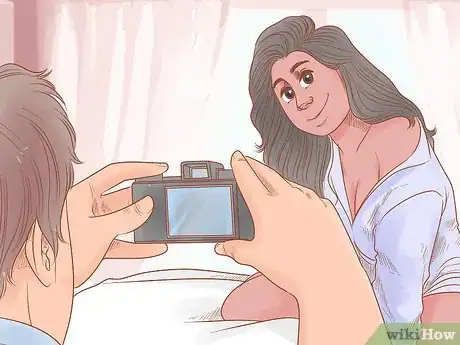
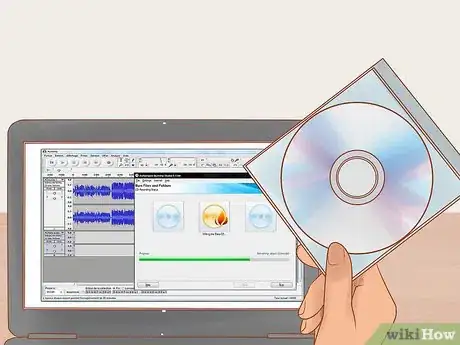

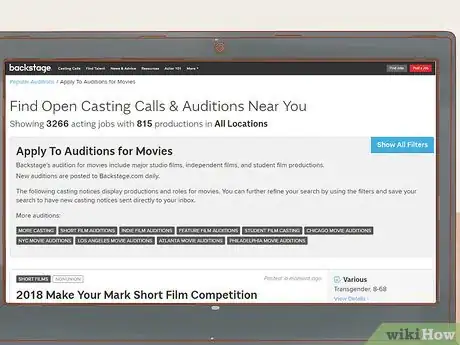
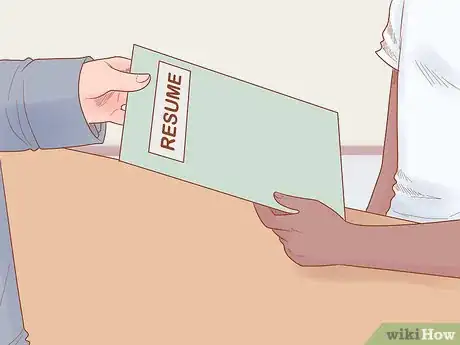
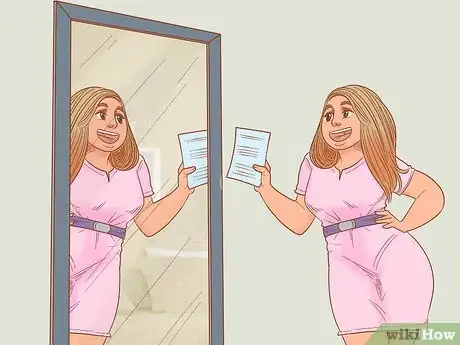







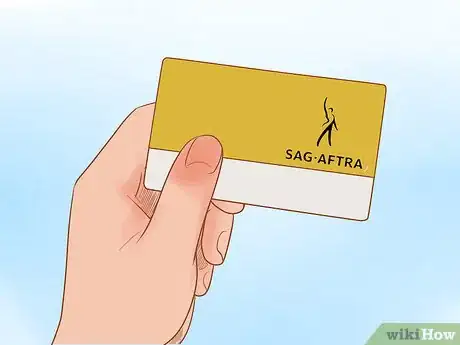





-Step-14.webp)






















































